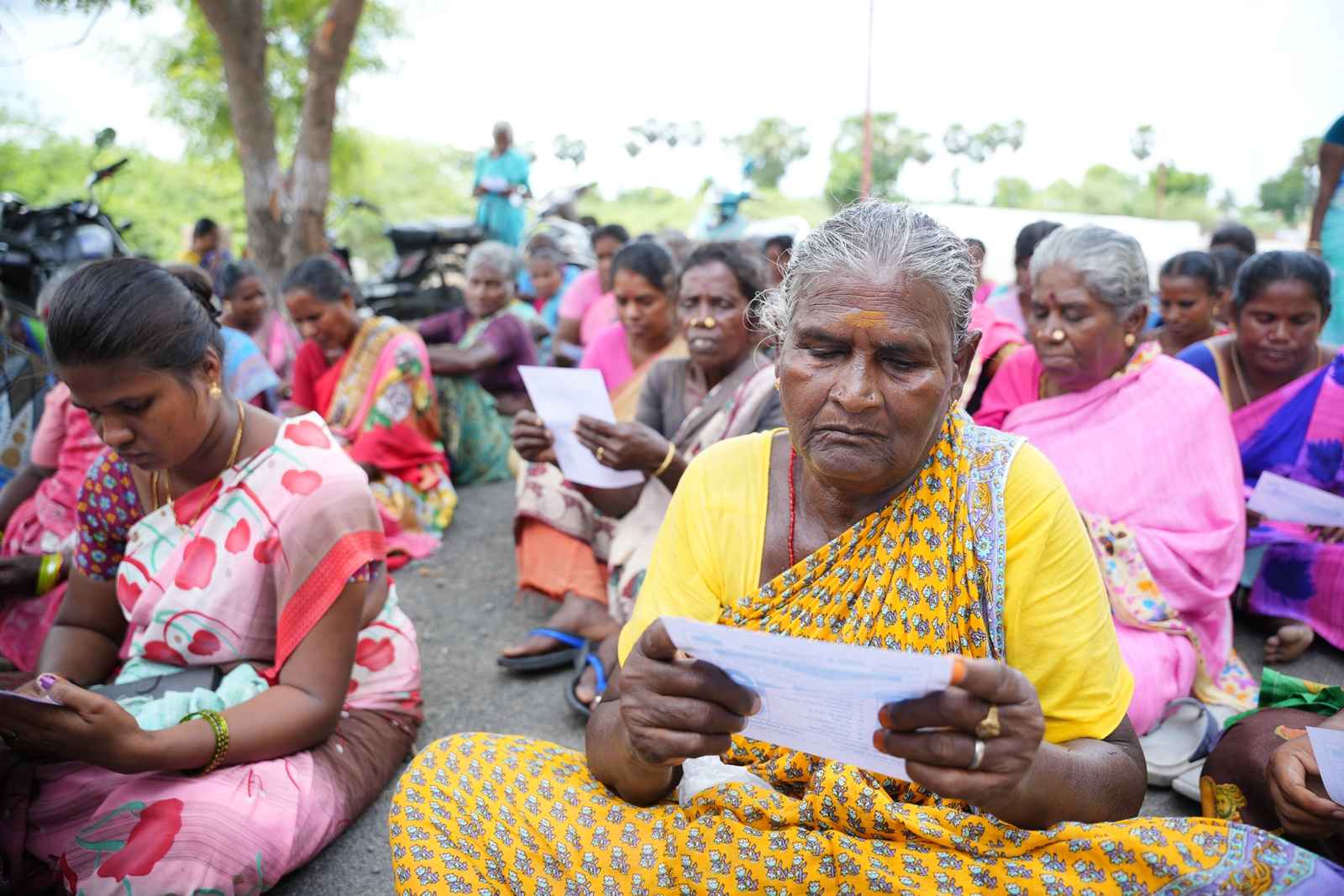Social service is no longer just limited to NGOs, as since 2013 Corporates have been given the responsibility to shoulder community development. Through their Corporate Social Responsibility (CSR) initiatives, corporates help the nation develop holistically. With much focus on underserved communities, the CSR in India is aligned with the United Nations Sustainable Development Goals so that “no one is left behind”.
Over the years, the paradigms of CSR initiatives have broadened along with their relationship with social stakeholders like NGOs and government institutions to achieve optimal benefits through strategic and consistent efforts.
To achieve the desired outcomes of CSR initiatives in India, recognising that CSR funding extends beyond financial contributions is important. It encompasses corporate support through employee engagement, technical expertise in planning and development, and rigorous analysis. These elements enable CSR programs to effectively penetrate grassroots for sustainable communities.
The Emergence of CSR in India
Back in 2013, when CSR in India was introduced, many were sceptical because the concept of charity has always been considered one’s free will choice. When doing good became a mandate, many could not understand the need for it. However, as the Companies Act 2013 formalised CSR, requiring qualifying companies to spend a percentage of profits on social development, this led to a shift from ad hoc philanthropy to structured initiatives in education, healthcare, environment and community development, significantly impacting societal welfare.
Over the years, CSR programs have expanded not just in their approach but also in funding size. Starting with a modest INR 13,000 crore in 2014 to becoming INR 50,000 crore in 2020, the CSR funding pool has grown exponentially.
Furthermore, experts believe that if corporates continue to boost their CSR programs with greater commitment, the fund pool could surpass INR 75,000 crore by 2024, offering hope to many lives still struggling to access basic amenities.
CSR- Strategic & Sustainable Efforts
CSR in India has shifted from traditional charity-focused approaches to more strategic and sustainable initiatives across various sectors. Modern CSR aim for a continuous and monitored approach to develop underserved communities contributing to national welfare.
In education, corporates have moved beyond one-time donations to long-term partnerships with schools and educational institutions, focusing on infrastructure development, teacher training and skill-building programs for lasting impact.
Similarly, in healthcare, CSR initiatives have evolved from healthcare camps to sustainable healthcare programs that address community health needs through clinics, health awareness campaigns and preventive care measures.
Today’s holistic and impactful CSR strategies foster sustainable development and social equity, going beyond charity to create meaningful, enduring change.
Key players of CSR in India
In India, several major corporates have emerged as big players in driving impactful CSR initiatives across diverse sectors. Companies like Tata Group, Reliance Industries, Infosys, and Mahindra Group are at the forefront, implementing comprehensive CSR strategies going beyond compliance and enriching communities nationwide.
In education, these corporations have established scholarships, built schools and promoted digital learning platforms, significantly increasing access to quality education in remote and slum areas. Healthcare initiatives have focused on infrastructure development, conducting health camps and providing medical facilities to the doorsteps of those who have limited money to spend on themselves.
For women empowerment, these corporates have launched skill development programs, supported women entrepreneurs and advocated for gender equality in workplaces. Moreover, their initiatives in youth livelihoods include vocational training, entrepreneurship incubation and job placement programs, empowering the youth with sustainable livelihood opportunities.
These socially-conscious businesses leverage their expertise and resources to drive sustainable development, foster social inclusion and create lasting positive impacts on society. Their proactive CSR efforts serve as benchmarks for corporate responsibility in India, inspiring others to follow suit in addressing pressing social and environmental challenges.
However, the evolution of CSR in India has evolved from just a corporate’s responsibility to a harmonious CSR partnership between corporates and other social stakeholders such as NGOs in India.
Role of NGOs in CSR Initiatives
Collective efforts are at the cornerstone of meaningful change. NGOs as implementation partners for corporates have been beneficial in implementing their CSR programs adhering to the CSR laws in India along with the UN’s Sustainable Development Goals.
Furthermore, the CSR partnership between NGOs and corporates has also proven to be more effective than sole operations because both of these institutions hold unique expertise and resources, which when infused together, helps in achieving sustainable goals catering to the underserved of India.
Additionally, the relationship between a Corporate and an NGO is a well-balanced ecosystem where they share a common goal of reaching out to everyone in need. The three reasons in which CSR partnership with NGOs can benefit the Corproates are-
- Enhanced reach and grassroots expertise
NGOs possess deep-rooted connections within local communities, enabling corporates to extend their CSR initiatives to remote and marginalised areas effectively. This partnership enhances outreach, ensuring impactful engagement and addressing diverse social needs with precision.
2. Strengthening community relationships and sustainability
Collaborating with NGOs builds trust and credibility among communities, fostering sustainable development. By aligning CSR goals with local priorities and involving community members in project planning and execution, corporates establish lasting relationships, ensuring initiatives meet long-term community needs.
3. Leveraging local knowledge and resources for effective implementation
NGOs offer invaluable insights into local cultures, challenges, and resources, optimising CSR program design and implementation. Utilising this local expertise enables corporates to adapt strategies, leverage available resources efficiently, and achieve greater effectiveness and sustainability in their social impact initiatives.
Smile CSR Partnerships–Harmonized Effort
Smile Foundation has steadfastly worked alongside underserved communities nationwide through collaborative efforts to empower children and families with quality education, healthcare and livelihood opportunities.
Emphasising sustainable community development, Smile adopts a life-cycle approach aimed at holistic growth. This strategy aims to create an ecosystem where underserved families can educate their children, maintain community health and acquire skills for financial stability.
Through partnerships with supportive corporate entities, Smile has expanded its impact significantly. Last year, over 15,00,000 children and their families have benefitted – our Mission Education program has positively influenced the lives of over 120,000 children in 27 states, aligning their education with government policies. Additionally, our Healthcare initiative has provided primary healthcare to more than 10, 50,000 people across India.
The STeP program has trained over 90,000 youth in vocational skills, successfully placing 56,500 in professional roles in 7 states ensuring that these young lives are able to garner the benefits of sustainable employment throughout their lives.
With a strong belief in the pivotal role of women, Smile’s Swabhiman has empowered over 150,000 women and girls with healthcare, maternal support and livelihood training, fostering financial independence and community growth.
Through collaboration with grassroots organisations, Smile amplifies efforts to serve underserved communities comprehensively, ensuring inclusivity and sustainable development for all.
Successful CSR Initiatives in India with Smile
- Grant Thornton’s CSR partnership with Smile Foundation has successfully resulted in the establishment of STEM labs in a school in Gurugram that shall help children to adapt scientific and numerical skills from an early age.
- MSD India and Smile Foundation partnered to provide 12 districts in Gorakhpur with Smile on Wheels – a mobile healthcare unit that is specially designed to provide people of underserved communities free primary healthcare services. Equipped with a qualified medical team and point-of-care services, free OPD and medicines, this mobile health unit is another step to ensure that no one falls short of availing the fundamental necessity of – a quality healthcare system.
- Berger Paints and Smile Foundation, collaborative initiative- iTrain program is one of its kind. A specialised training program to upskill men and women in the skill of painting and making them self-reliant has proven to be quite a successful CSR partnership, as it has resulted so far in empowering lakhs of individuals across 24 states in India.
- CommonWealth Bank has been an ardent supporter of Smile Foundation’s Swabhiman program. In continuing the efforts to empower women financially, the CommonWealth Bank collaborated to organise an interactive session- “Generate Your Wealth” for budding women entrepreneurs, where they were made aware of topics like business development, marketing strategies, financial planning through brainstorming and team building activities.
Expand CSR Programs with Smile
CSR partnerships support and strengthen government efforts to uplift underserved communities. By collaborating with NGOs like ours, corporates can leverage local expertise and community trust to implement impactful initiatives in education, healthcare and livelihoods. These partnerships amplify social impact, complementing governmental initiatives and ensuring sustainable development across the country.
Partnering with Smile Foundation offers corporates several benefits. It provides access to established programs and networks dedicated to improving education quality, healthcare access and livelihood opportunities for disadvantaged populations. Our proven track record in empowering communities makes us a reliable and effective partner for corporates aiming to fulfil their CSR mandates effectively and ethically.
Collaborate with Smile Foundation to create lasting change in India’s underserved communities. Connect with us at [email protected]
Together, we can make a meaningful difference!









